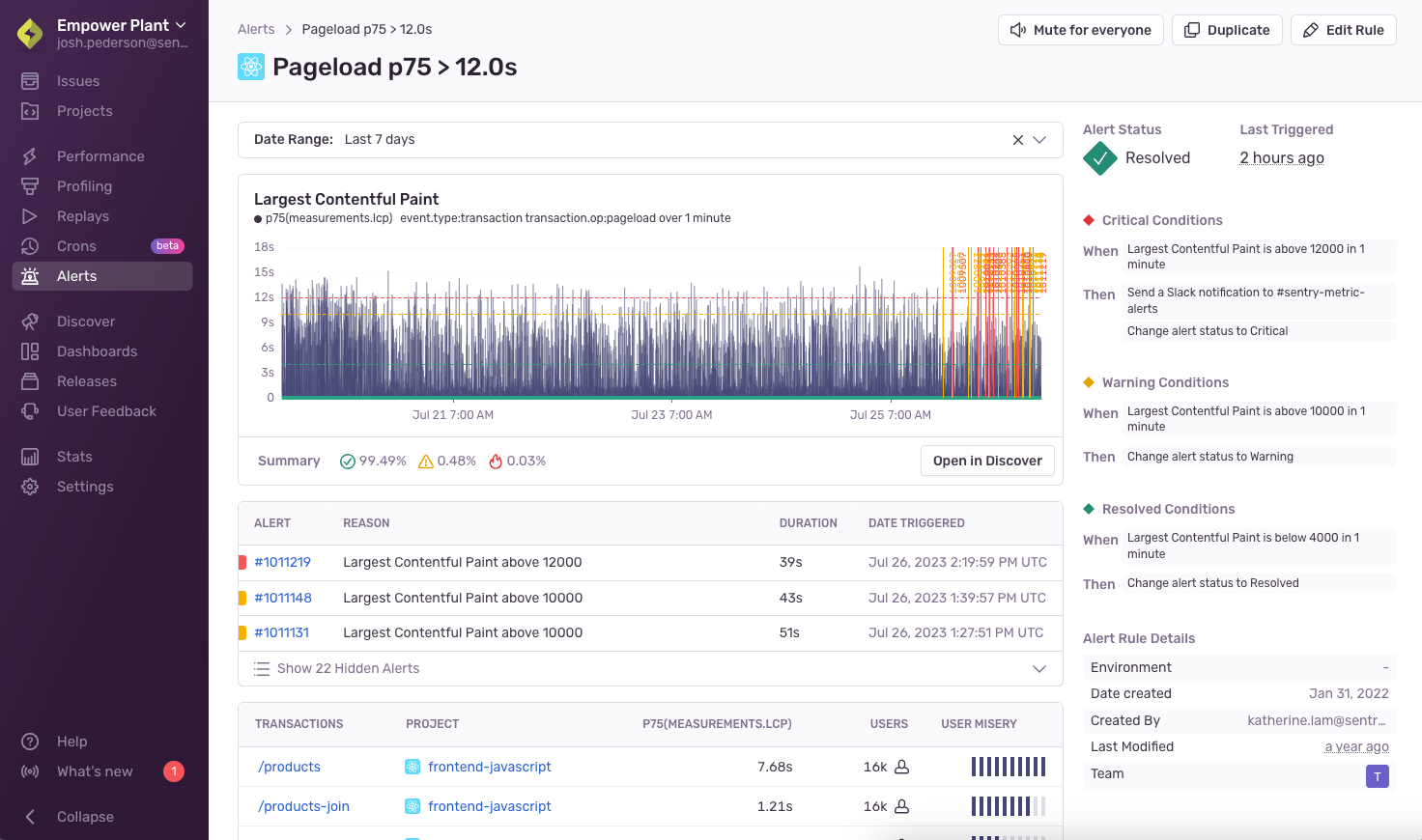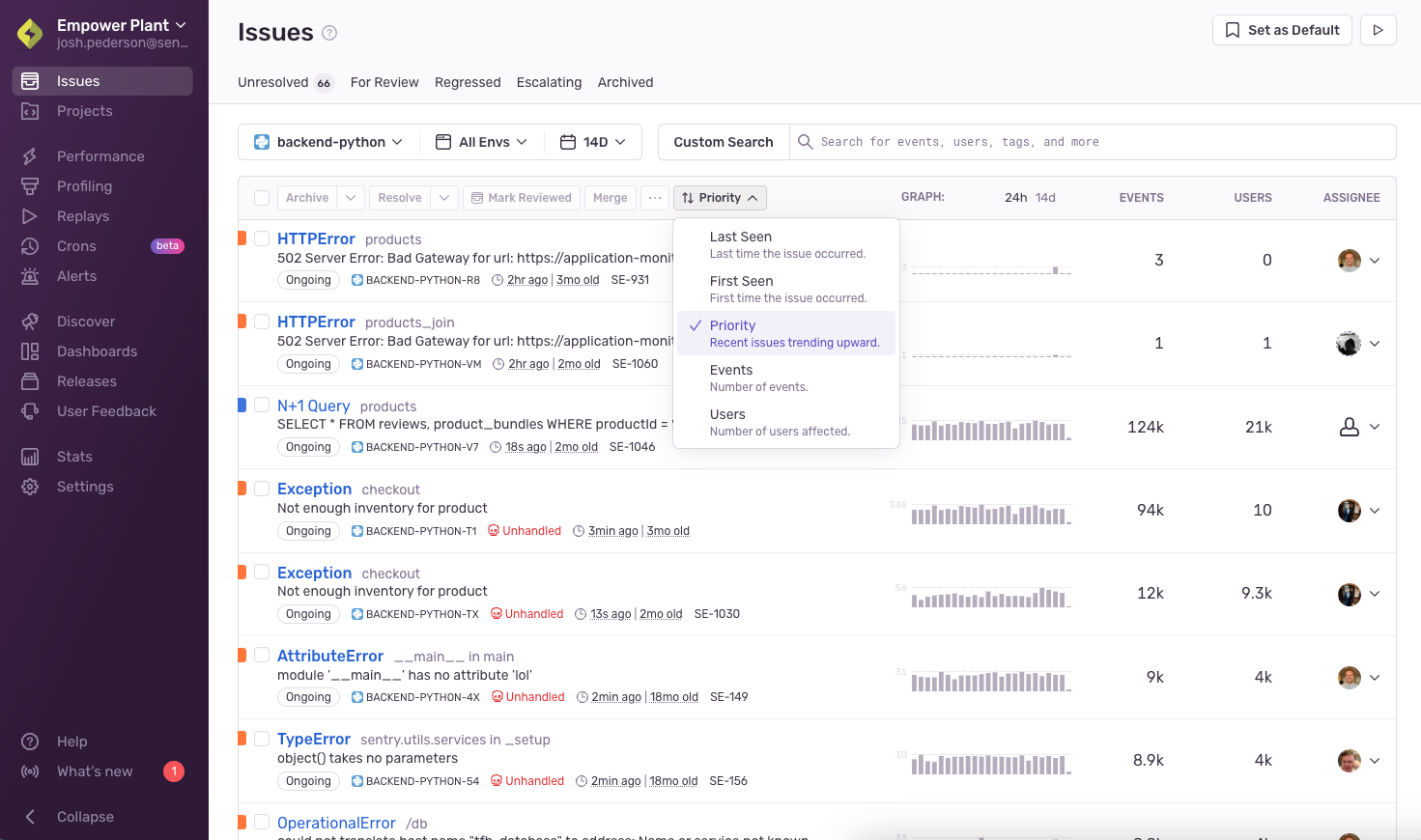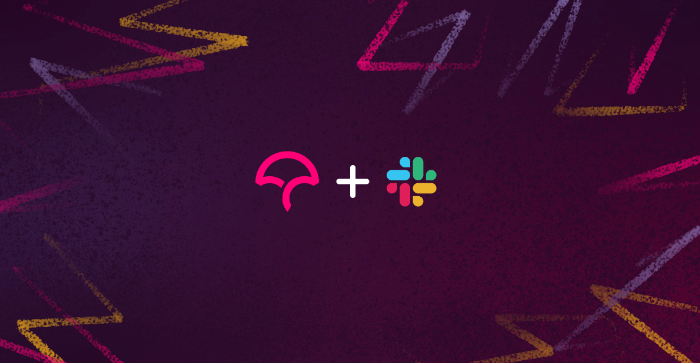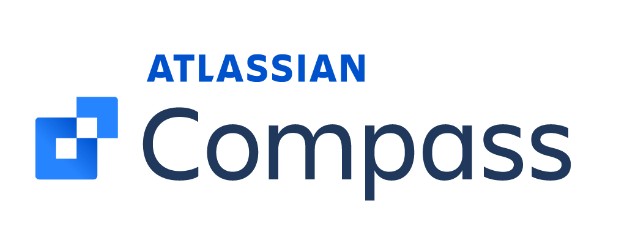July Product Updates for Sentry
July Product Updates for Sentry
During the past month of July, the Sentry dev team dropped new capabilities to help you better understand, prioritize, and respond to errors and performance problems. From new ways of sorting priority issues to helping you be more proactive in identifying problems earlier in the dev lifecycle, we’ve picked a handful of recent releases to dive into. Plus we’ll highlight a couple of new integrations with our friends at Slack and Atlassian. Here’s the list:
Mute alerts
Even the most well intentioned alerts can be noisy depending on what you and your team consider important. To give you more control over reducing that noise we’ve released the ability for you to mute both issue alerts and metric alerts for yourself or for your entire team. Now you can turn down the noise when needed simply by clicking the mute button in an alert email or in the alert details page. If you’re looking to refine management of alerts in general, you can find a ton of good tips and tricks in our best practices.
Priority issue sorting
As Sentry detects issues with your application, we serve them to you in our issues feed with sort and filter controls enabling you to expose the issues that matter most. To extend this, we’ve released Priority Sort, designed to highlight new and escalating issues while moving older issues, and those with fewer recent events, lower on the list. The ranking relies on a sorting algorithm that considers three main factors of relative volume, absolute volume, and issue age. It’s easy to see this new Priority Sort in action by clicking to your Issues Feed and choosing ‘Priority’ in the sort pull-down menu. Check it out.
Comments on suspect PRs
At Sentry, one area of our product focus is to empower your team to identify, assess, and address issues earlier in the development life cycle (think Codecov). Pull Requests (PRs) are one critical step of the development process where Sentry can now inform you and your team on potential application issues. By adding comments to recent PRs suspected of causing issues Sentry can help you catch potential problems at this early stage before new code is deployed. You can learn more and engage in the lively discussion on GitHub.
Customizable Slack notifications for Codecov
Expanding capabilities around alerts is not just for Errors and Performance, we’ve also done something new and exciting for Sentry Codecov here in July. Through our new Codecov Slack integration you and your team can now receive automated updates on code coverage changes for your PRs to more easily identify coverage increases or decreases. Using /codecov notify you have full control to customize your notifications in Slack and receive targeted updates for the repositories and events that matter most to you in any channel.
In addition to rich notifications, you can also pull a list of PRs with a summarized view of coverage changes through a simple slash command. You can also easily compare two commits using /codecov compare to figure out what really happened and if you need to do anything about it.
Platform integration with Atlassian Compass
Atlassian Compass is a developer experience platform that brings your distributed software architecture and the teams collaborating on them together in a single, unified place. With the new Compass - Sentry integration both performance monitoring and error tracking can be added to your Compass software catalog giving you more contextual information to reduce cognitive load. The integration also adds Sentry errors and alerts to the activity feed for a comprehensive look at events affecting your components and their dependencies, with the "Unresolved Sentry Issues" metric for your components. Learn more about Atlassian Compass and this integration with Sentry on the Compass website.
If you want more, our changelog has the running list of all product and feature releases. You can also drop us a line on GitHub, Twitter, or our Discord. And if you’re new to Sentry, you can try it for free today or request a demo to get started.








